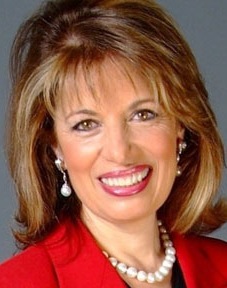BOMA San Francisco Members:
Recently, the San Francisco Municipal Transportation Agency (SFMTA) Board of Directors approved a resolution supporting a set of policy recommendations to improve parking access for people with disabilities. The recommendations, developed by a stakeholder group comprised primarily of people with disabilities, include proven solutions used in other jurisdictions. The group’s presentation began with a new short video showing the challenges people with disabilities face when trying to find available, accessible parking spaces.
Watch the new videoThe SFMTA Board resolution provides conceptual support for the Committee’s recommendations, but several of them require state law changes before local policies can be updated. The SFMTA Board added a requirement to the Committee’s recommendations directing the development of a discount program for low income people with disabled parking placards should state law changes move forward allowing communities to remove the meter payment exemption. This additional requirement is in direct response to public feedback that low income people with disabilities who travel by private vehicle may be negatively impacted by the shift from free parking to meter payment.
The SFMTA and the Mayor’s Office on Disability will return to the community for additional input prior to establishing local time limits and meter payment requirements should state law change to allow cities to move forward with these recommendations. It is at this point that the Board of Supervisors would review policy changes.
Read more about the Committee and its package of recommendationsPlease send any feedback to
parkingaccess@SFMTA.com or by calling 415.701.5380.
--------------------
UPDATE - May 28, 2013
BOMA San Francisco Members:
San Francisco’s Accessible Parking Policy Advisory Committee, a group of 16 stakeholders gathered by the Mayor’s Office on Disability and the San Francisco Municipal Transportation Agency (SFMTA), have announced an integrated set of recommended state and city policy changes intended to improve parking access for people with disabilities.
Learn more at the project web page
Read the overview brochure (PDF)
Thank you to BOMA member
Jeff Spicker with Parking Concepts, Inc. for representing BOMA members on the advisory committee.
--------------------
Original Post - December 7, 2012
BOMA San Francisco's
Government and Public Affairs Committee (GAPAC) member
Jeff Spicker with
Parking Concepts Inc. will volunteer his time and expertise as BOMA's representative on the SFMTA Accessible Parking Policy Advisory Committee. Mr. Spicker will provide updates on the group's discussions and actions to members of the GAPAC when warranted.
The Accessible Parking Policy Advisory Committee will review and make recommendations regarding on-street accessible parking policies, including those governing disabled placards and blue zones. These issues affect access and mobility for people with disabilities in San Francisco, whether they travel by car, paratransit, or public transit.
Accessible parking policies affect all transportation in the city: when parking is crowded, drivers circle the block and double-park, congesting the streets, slowing transit, and decreasing pedestrian safety. When parking is difficult to find, access is reduced, especially for those with disabilities.
To improve access, the San Francisco Municipal Transportation Agency (SFMTA) would like to assess and improve how it manages accessible parking. The problem of too much demand for too few spaces is critical: San Francisco has 29,200 metered on-street parking spaces but 60,750 disabled placards have been issued in San Francisco as of November 2012, with an additional 453,830 issued in the surrounding eight Bay Area counties. With these numbers, it is important to gather stakeholders to assess accessible parking policies and consider solutions.
Please click here to review the Accessible Parking Policy Advisory Committee summary.





























